Biography
Adolf Eichman is a German-Austrian politician, Obersturmbanführer SS and one of the main organizers of the Holocaust, Head of the Jewish Department, responsible for their expulsion to the destruction camp, where the victims poisoned with gas. The history of life, political career and death Eichman is described in the documentary film of the Italian director Feruzcio Valerio "Brutal Souls".Childhood and youth
Otto Adolf Eichman was born on March 19, 1906 in the German city of Solingen in the Calvinist Protestant family. His parents were Adolf Carl Eichman, who worked as an accountant, and Maria Sheffeling, a housewife.
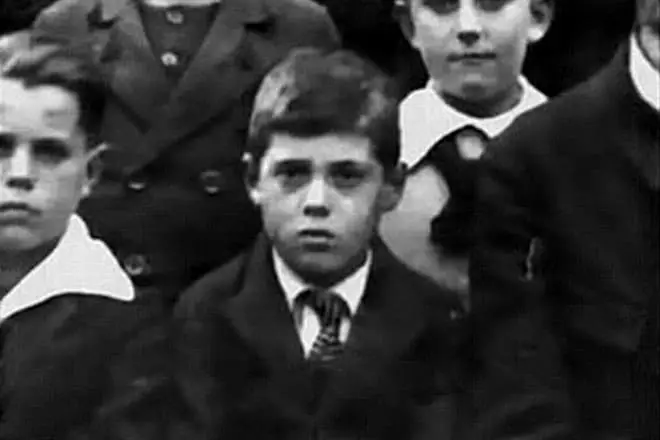
In 1913, his father moved to the Austrian city of Linz to take the position of the commercial manager of the "Electric tram company", the remaining family members, a spouse and 5 children came to him a year later. After the death of his wife in 1916, Adolf Eichman-Sr. combined with a marriage with the Zarzel, a devout Protestant with two sons.
The boy visited the State Secondary School in Linz, engaged in music and took part in sports competitions, was a member of the club of scales and other youth organizations. Because of bad performance, he was expelled from the school and gave it to the professional school that he did not finish.
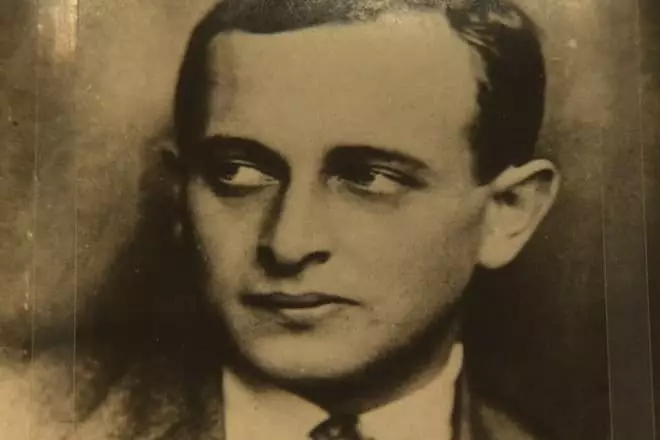
A few months later, Eichman worked in Salzburg, at the mine acquired by the Father, then became the seller in the Oberösterreichische Elektrobau AG radio commission. Since 1927, a young man was a district agent of the Vacuum Oil Oil Company.
During this time, Adolf joined the "Youth Union of Frontovikov" and became interested in reading newspapers issued by the Nazi Party (NSDAP), the platform of which was based on the dissolution of the Weimar Republic, refusing the conditions of the Versailles, radical anti-Semitism and Anti-Bolshevism.
Political activity
On the advice of a friend of the family, Ernst Kaltenbrunner Eichman joined the Austrian Branch of NSDAP on April 1, 1932. His regiment SS-Standarte 37 was responsible for the security of the headquarters of the party in Linz and the accompaniment of the Nazis speakers on rallies. A few months after the seizure of the board with nationalists in Germany in early 1933, Eichman lost his job at Vacuum Oil, and in Austria banned NSDAP. These events have become defining in the biographies of Eichman, who decided to escape from Austria and return to Germany.
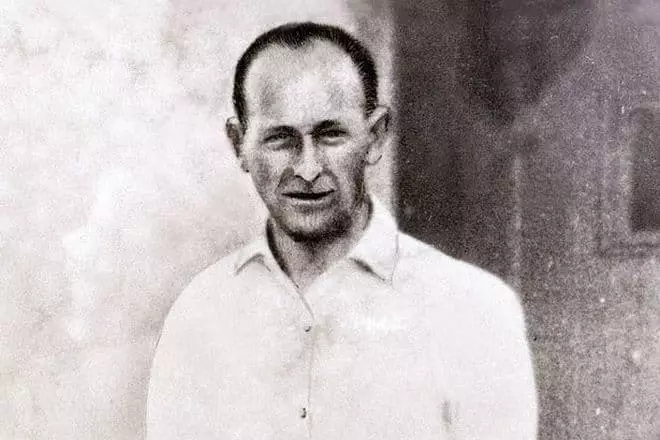
In August 1933, Adolf was trained in the camp of attack aircraft in Klosterlehfeld, then settled on the border of Passau at the head of the SS Group for the leadership of the Austrian national socialists in Germany and the smuggling of propaganda materials in Austria. At the end of December, when this unit was dissolved, Eikhman was raised to Untershruer.
In 1934, the young Nazis was accepted in the SD and appointed a submissions on Masons engaged in the withdrawal of ritual items for the future museum, and in six months translated into the Jewish department. Eichman was instructed to explore the Zionist movement and provide reports on organizations. He studied the Aza Hebrew and Yidisha and became a "specialist in Jewish issues." Nazi Germany used violent methods and economic pressure in order to encourage Jews to leave Germany at their own request.
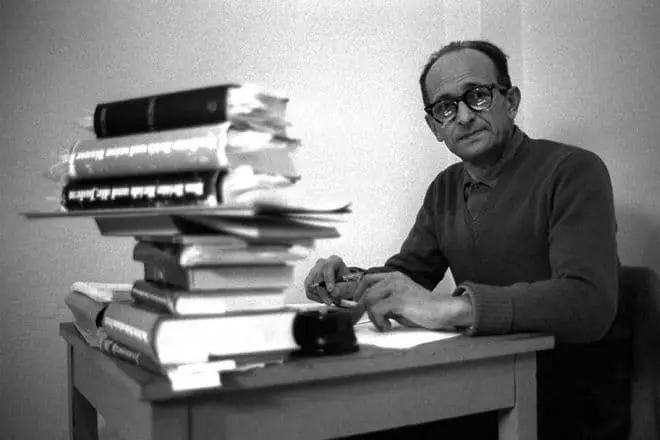
In 1937, Untershurmfücher Eichman accompanied Herbert Hagen during a trip to Palestine. The purpose of the visit was an assessment of the possibility of voluntary emigration of German semites into this country. The mission failed because the Nazis refused to issue visas. Nevertheless, the Messengers of Germany met in Cairo with the leader of the Hagan, an underground Zionist organization, who supported the idea of increasing the number of Jews in Palestine.
In 1938, Eikhman was sent to Austria to assist in the Jewish emigration from the country, which became part of the Third Reich, and assigned the title of CC-Obersphurm. When he left Vienna in the late spring of 1939, almost 100 thousand Jews left Austria on legal grounds, and even more illegally taken to Palestine and to other places.
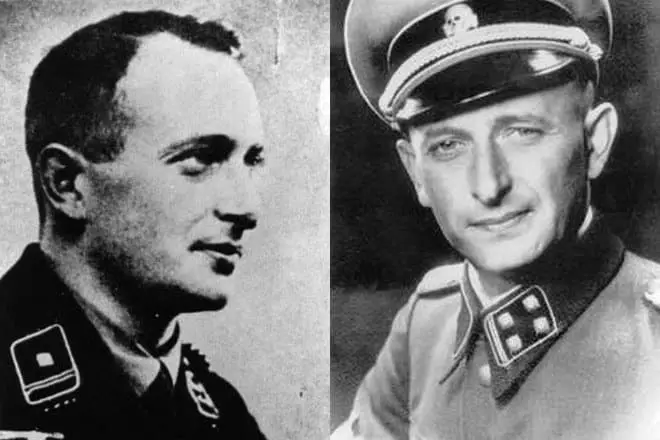
After the start of the Second World War on September 1, 1939, the German policy, belonging to the persons of Jewish nationality, has changed from voluntary emigration to forced deportation. They were supposed to be gathered in the cities of Poland with regular railway communications and send from territories controlled by Germany. To do this, have created a new department, the Main Department of Imperial Security (RSH), under the guidance of Reinhard Heydrich.
After a trip to Prague to create there, Eichman's emigration office was transferred to Berlin in the middle of the autumn of 1939 to command the main office of Jewish emigration under the leadership of Heinrich Muller, headed by Gestapo. He was instructed to organize a deportation from 70 to 80 thousand Jews from Moravia.
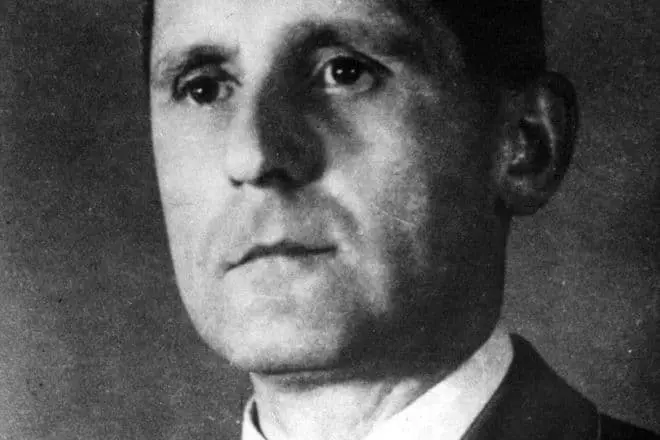
On his own initiative, Eichman planned to take the Zionists from Vienna. The Wrasturmführer SS chose the Polish city of Nisco to a place for a transit camp. On the last week of October 1939, 4700 Jews were sent to this area by the train, and they were left for an arbitrary of fate in the open space without water and food. The barracks were planned, but never were completed.
In 1939, Eikhman was included in RSH, put the IV-B4 sector at the head. Reinhard Heydrych announced a new head of the department with his "Special Expert", which is responsible for organizing all deportations to the occupied Poland. Since the beginning of the German invasion of the Soviet Union in 1941, AinzattzGroups were followed by the main army in the captured areas, the Jews, employees of the Comintern and members of the Communist Party were collected and killed. Eichman received regular detailed reports on death squadrons.
On July 31, 1941, Gering gave the heydrich prescription to prepare and submit a "complete decision of the Jewish question" on all lands occupied by Germany. The head of the RSHA ordered Eichman, who was assigned the title of Obersturmbanfürera SS, destroy all the Jews in European-controlled Europe. Soon after the Vanzea Conference on January 20, 1942, a large-scale movement began under the supervision of Eichman to the camp of destruction in Belchets, Sobilore, Chelvka and other places.
The Obersturmbanfürera division was responsible for collecting information about Jews in each area, organizing their property seizure and the schedule of their trains. Eichman spent regular meetings with the staff of its field, and traveled a lot to inspect the concentration camps and ghetto.
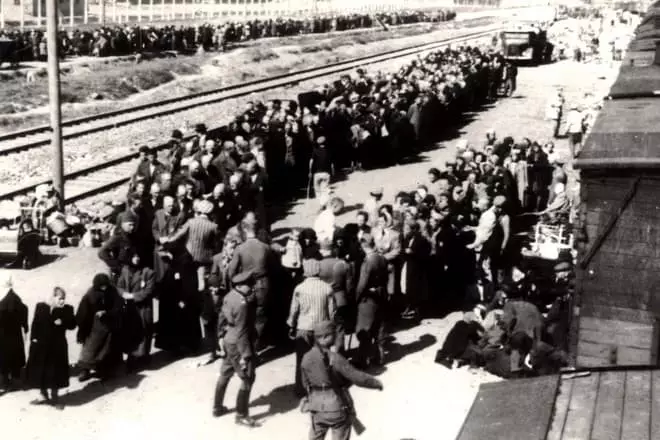
On March 19, 1944, Germany entered Hungary. Local Jews, who up to this point remained almost unhappy, was deported to the concentration camp of Auschwitz for forced work or in the death chamber. Eichman personally followed the preparation on this territory.
In April 1944, the overshurmbanfürer led negotiations with representatives of the Zionist movement about the redemption of Jews. Meeting with Rudolph Kasstner, head of the Hungarian Assistance and Salvation Committee, retained the life of 1686 Jews sent by train to Switzerland in exchange for 3 diamond suitcase, gold, cash and securities. Shortly before the end of the Great Patriotic War, Eichman burned recording, compromising the IV-B4 Department, and, together with other officers, the SS fled from Berlin and settled in Austria.
Personal life
On March 21, 1935, Adolf Eicman was combined with a marriage with a Catholic in the peasant family of Veronika (faith) Libl. The couple had four sons: Claus, Horst Adolf, Dieter Helmut and Ricardo Francisco. The wife of Obersturmbanfürera did not love Berlin, she lived in Prague with children. Original Eichman visited them weekly, but over time, his visits declined to once a month.
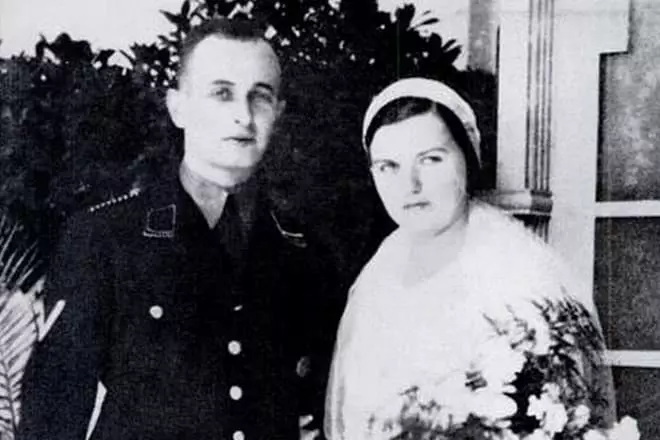
At the end of the war, Eichman disappeared from the allies, but was arrested by the Americans. He fled from imprisonment with fake documents and equipped his personal life in the north of Germany. In 1950, the Nazi criminal received the Red Cross International Humanitarian Passport, which allowed the former German officer to immigrate to Argentina. The family joined him in 1952 in Buenos Aires.
The last time Eichman saw his wife on April 30, 1962, a month before the execution.
Abduction and trial
Several Jews who survived after the Holocaust devoted themselves to finding Eichman and other fascists. Lothar Herman played an important role in the disclosure of the personality of the German military criminal. His daughter Sylvia in Buenos Aires has brought acquainted with Klaus Eichman in 1956, which boasted the Nazi exploits of his father. This was told by Fritz Bower, the Prosecutor General of Hesse in West Germany, who handed this information to the director of Israeli military intelligence in Israel Harelu.
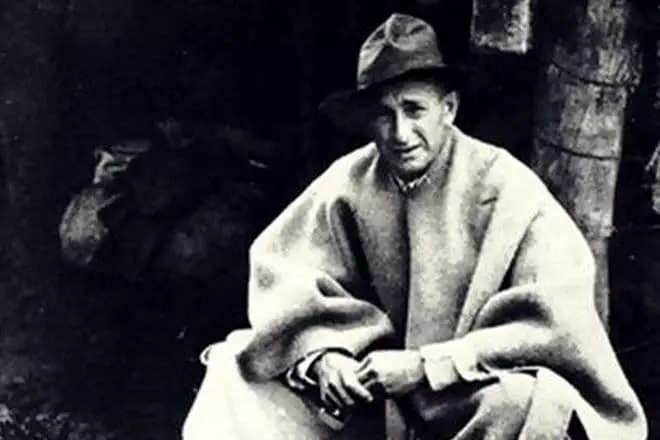
The Eichman was monitored, but did not find evidence of his involvement in the Nazis. In 1960, the Mossad Agent Zvi Aaroni confirmed the identity of the former overshurmbanfürera in the photo and as a result of surveillance.
Israelic intelligence planned the abduction of Eichman, since Argentina had the history of refusal to extradite Nazi criminals. On May 22, 1960, the former German officer was taken to Israel, where he stayed 9 months in a fortified police station, exposed to daily interrogations.
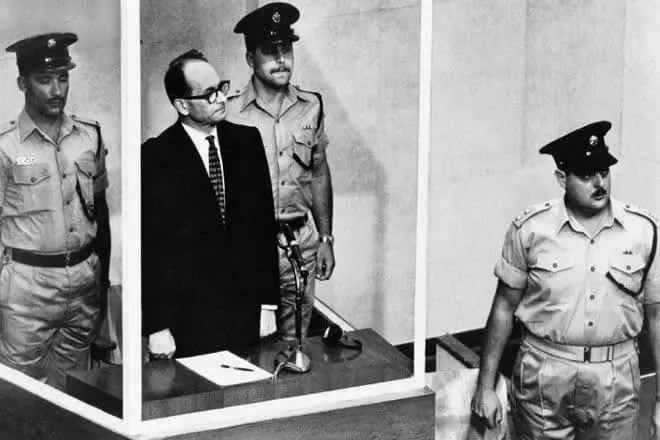
On April 11, 1961, the Eichman trial began in the Special Tribunal of the Jerusalem District Court. The Nazi criminal was accused of crimes against humanity and the Jewish people, war crimes and membership in NSDAP. Eichman insisted that he had no choice but to follow orders, since he was bound by the oath of loyalty to Adolf Hitler.
On December 15, 1961 he was sentenced to the death penalty at the gosether as a key genocide culprit.
Death
Eichman's defense filed several appeals to the Supreme Court, sentenced personally asked Israel's President Itzhak Ben-Zvi about pardon. All petitions were rejected. Eichmana executed on June 1, 1962 in prison Ramla. The cause of death was the stroke.
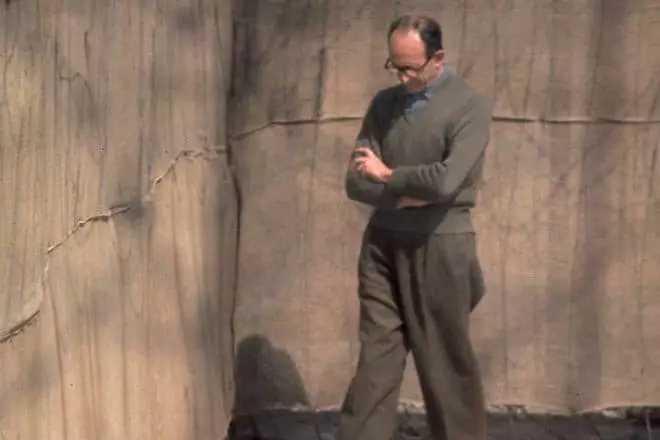
For a few hours, his body was cremated, and the dust were dispelled in the Mediterranean, outside of Israel's territorial waters.
In 2000, the Government of the Holy Land published the Achman Diaries, where he described the atrocities of the Nazis in relation to the Jewish people.
